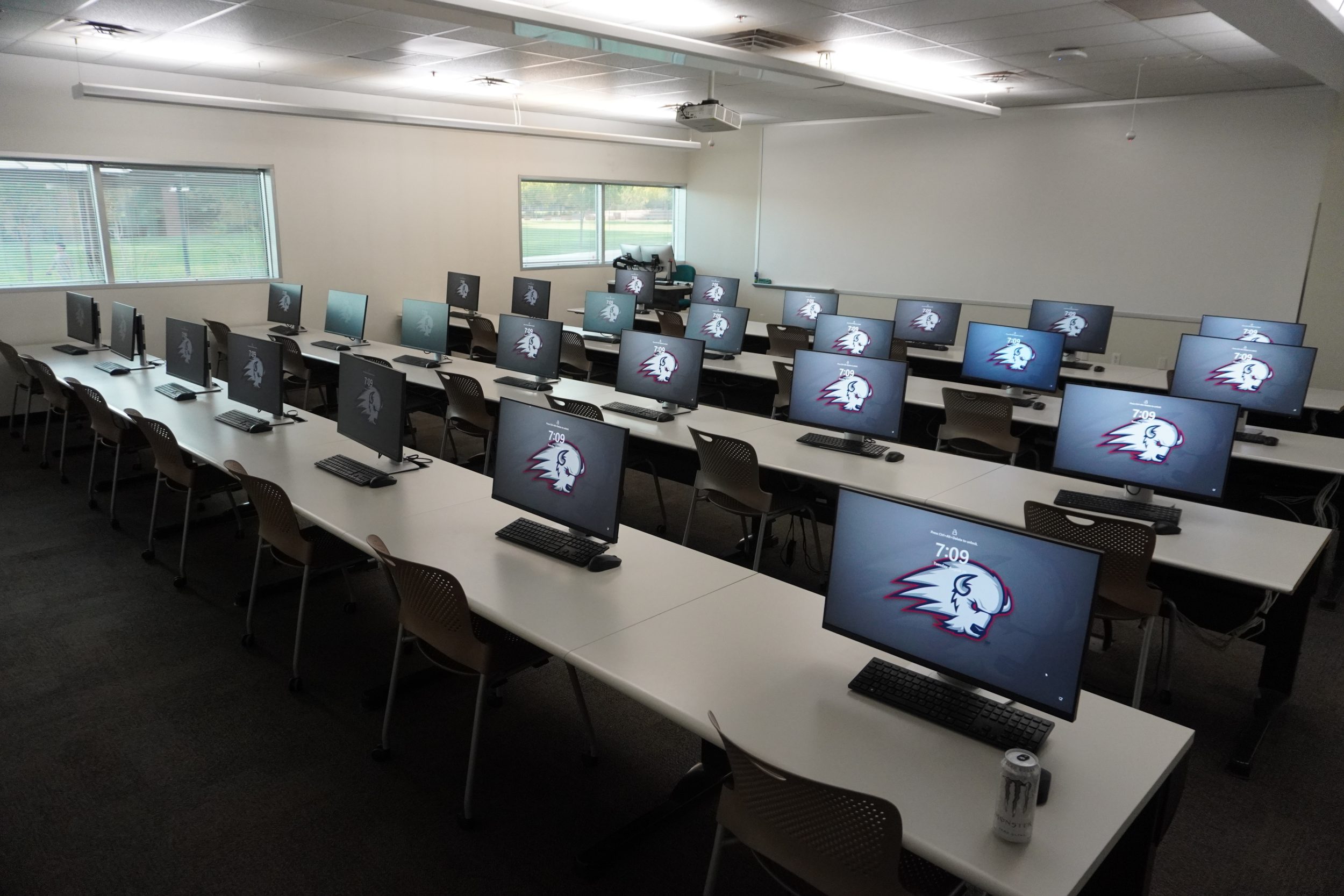Utah Tech University has recently expanded its possibilities for students to specialize in digital security. The new cybersecurity bachelor’s degree has opened for all students interested.
New certificates in cybersecurity, and cyber supervisory control and data acquisition (cyber-SCADA) are also available.
Aaron Davis, interim dean for the College of Science, Engineering, and Technology, said cybersecurity became a full career path due to the intense demand and the shortage of faculty to offer more specialized, extensive courses.
They now have the support to distribute classes and teach a full program. This enables the university to satisfy that demand.
Davis said, “Talking to employers and trying to figure out what skills [students] need, they could find what areas are in demand where students could graduate with Utah Tech and get a job.”
To help students understand what kinds of jobs they can pursue after graduation, Syed Ali, acting assistant professor of cybersecurity, gave examples of a few related to this program:
- security operations center (SOC) analyst
- network and system administrator
- digital forensics investigator
- firewall and cloud security specialist
- governance, risk and compliance (GRC) analyst
Ali said the best method to learn in this field is not by textbooks but by putting students in real-time cybersecurity scenarios and enterprise-level environments so they graduate ready to contribute from day one.
Ali said, “We connect classroom learning directly to industry standards, including SOC operations, compliance frameworks and enterprise network defense.”
This method of teaching is based on the experience all the professors have had. They use their knowledge to ask students what they would do in situations they themselves have been in before. Acting with what they have been taught, students can either implement it, or the teachers will give them minimal instructions, and they will have to perform the operation from start to finish.
Another skill that helps students be prepared for workplace situations is the use of ethical hacking, so that in the future they know what they are fighting against and know how to mitigate it.
Ali said students get different perspectives on cybersecurity around the world. Aside from his experience in other countries, he said two exchange faculty members from Romania are also coming this semester to teach students what they can learn in various parts of the globe.
The cyber-SCADA certificate is important in today’s market, and students are at an advantage in the job market by building a portfolio with the help of publishing research papers here.
The main idea behind SCADA stems from a system that remotely manages industrial processes such as industrial manufacturing, automation, power plants or energy facilities and collects data from it. Then, it learns and enables the system to automate processes. The risk is that this system can be put in jeopardy by a virtual attack, which would cause a great loss in the production line.
Joe Francom, department chair and professor of computer science, talked about the skills students will learn beyond the technical ones. Problem-solving is the first one students are going to notice. He said that although technology evolves and changes throughout the years, you have to learn how to problem solve, learn how to think outside the box, and learn how to learn.
“The technology is always going to change. It’s changed a lot since I started,” Francom said.
These skills are often needed in jobs where knowledge has advanced since an employee earned their degree, thus their training becomes outdated. This program ensures students can adapt to what the workforce requires.
An advantage of the program is that students learn from faculty with years of hands-on experience and gain insight into the career paths the field offers.




